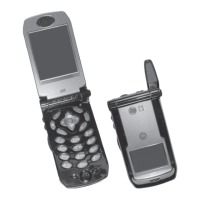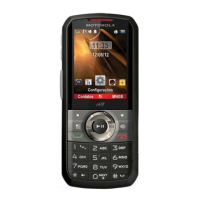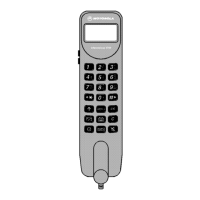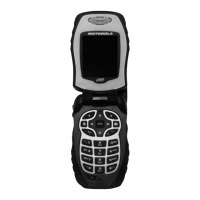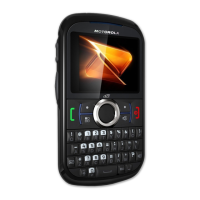OVERVIEW: Transmitter Path Section
1.7.3.7 TEMPERATURE SENSOR
A temperature sensor is included in the Janus module. The sensor is located close to the SAW
filter whose temperature raises the most during TX operation.
The preferred implementation for the sensor is a thermistor Panasonic ERTJZEP473J connected
between GND and PA_TEMP.
1.7.4 Cartesian Feedback
The iDEN transmitters use MQAM modulation, which requires a highly linear PA with wide
dynamic range. Linear PAs are highly inefficient, so a class AB PA is used for better efficiency and
longer battery life. The class AB PA is fairly linear, but not totally, and this causes splatter in the
RF spectrum around the transmitted frequency band. To reduce splattering into the adjacent
channels and to meet system specifications, the transmitter uses Cartesian feedback to linearize the
PA and reduce splatter. Negative feedback is a commonly used method to linearize circuits.
Cartesian feedback is the process of down converting the feedback signal to baseband and
summing it with the input signal in the I & Q paths separately. One can control the 180
º
phase shift
at baseband more precisely than at RF frequencies. The SLEDGEHAMMER is the heart of the
Cartesian feedback system, and as such, is the heart of the transmitter. There is a forward path and
a feedback path in the transmitter. This is a closed loop system and the loop cannot be opened
without drastic consequences.
(See i897 Block Diagram Figure 1-13 Below). (TX interface
between SLEDGEHAMMER and JANUS).
Figure 1-13. i897 Block Diagram
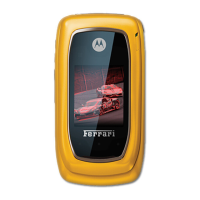
